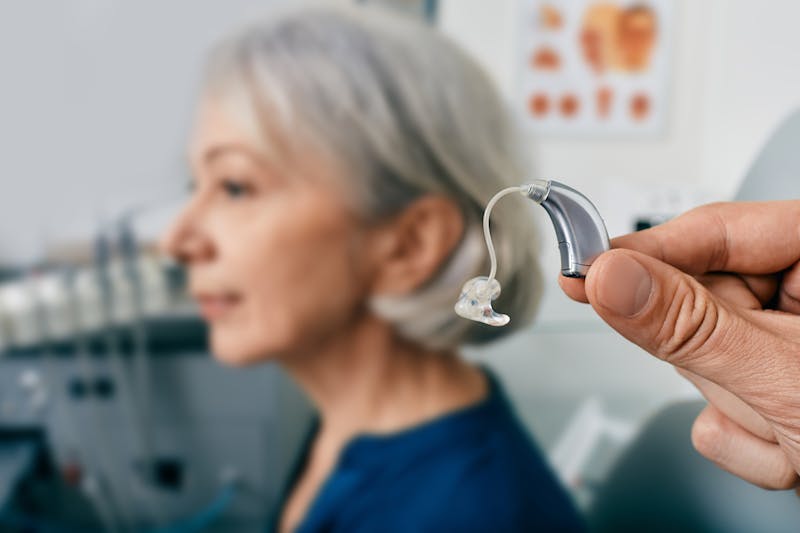
Hearing aids have become indispensable companions for millions worldwide, enhancing their ability to engage in conversations, enjoy their favorite activities, and connect with the world around them. But are hearing aids waterproof? The answer depends on the type of device. In this blog, Texas ENT Specialists will uncover the facts about the water resistance of modern hearing aids.
Water-Resistant vs. Waterproof
Some devices are water resistant, while others are waterproof. The critical difference between water-resistant and waterproof lies in the degree of protection they offer against moisture:
- Water-resistant devices provide a level of protection against everyday exposure to moisture like sweat, rain, or splashes, but they are not designed for prolonged submersion or high-pressure water activities
- Waterproof devices are engineered to withstand immersion in water for extended periods without compromising their functionality, making them suitable for activities like swimming or showering
Most modern hearing aids are designed to be water-resistant to varying degrees and are categorized based on their Ingress Protection (IP) ratings:
- The IP rating consists of two digits, with the first digit representing protection against solids like dust and the second digit indicating protection against liquids
- For example, a hearing aid with an IP67 rating is highly dust-resistant (6=dust) and can withstand immersion in water up to one meter for 30 minutes (7=liquid)
Is My Hearing Aid Waterproof?
Understanding whether your hearing aid is waterproof or water-resistant is crucial for knowing how it will perform in different situations involving moisture. Here's a guide to help you distinguish between the two:
Check the Manufacturer's Specifications
- Review the product information provided by the manufacturer
- Look for terms such as "waterproof," "water-resistant," or specific IP ratings related to water protection
- Manufacturers typically specify the level of water resistance their hearing aids offer, which can range from basic splash resistance to full waterproofing
Consider Design and Construction
- Examine the design and construction of your hearing aid
- Waterproof devices often have additional seals, coatings, or ruggedized components to prevent water ingress
- Look for features like tight-fitting battery doors, silicone gaskets, or nano-coatings that enhance water resistance
Consult the User Manual or Documentation
- Refer to the user manual or documentation provided with your hearing aid
- The manual typically includes information about the device's water resistance and guidelines for use in wet environments
- To ensure the longevity of your hearing aid, follow the manufacturer's recommendations for cleaning, maintenance, and exposure to moisture
Seek Professional Advice
- If you're uncertain about your hearing aid's water resistance or need clarification, consult with your audiologist or hearing healthcare provider
- Professionals can provide insights into your device's capabilities, offer maintenance tips, and recommend appropriate solutions based on your lifestyle and needs
Taking Care of Water-Resistant Hearing Aids
While water-resistant hearing aids provide durability and protection, it's essential to take proper care of them to ensure they last long and perform well:
- Keep Them Dry: Use a hearing aid drying kit or dehumidifier to remove moisture from your devices overnight.
- Clean Regularly: Clean your hearing aids daily using a soft, dry cloth or a specialized cleaning tool recommended by your audiologist.
- Avoid Water Submersion: Although water-resistant, avoid unnecessarily submerging your hearing aids in water, especially beyond their specified limits.
- Professional Maintenance: Schedule regular check-ups and maintenance appointments with your audiologist to keep your hearing aids in top condition.
Let Texas ENT Specialists Answer Your Hearing Aid Questions
If you're thinking about getting water-resistant or waterproof hearing aids or have questions about how they'll fit into your life, Texas ENT Specialists are here for you. Our experienced ENT specialists and audiologists can evaluate your needs, suggest appropriate hearing aid options, and offer advice on how to care for and maintain them.
Don't let worries about water resistance stop you from experiencing hearing aids' advantages. Schedule a consultation with Texas ENT Specialists today and start your journey to better, more assured hearing!

